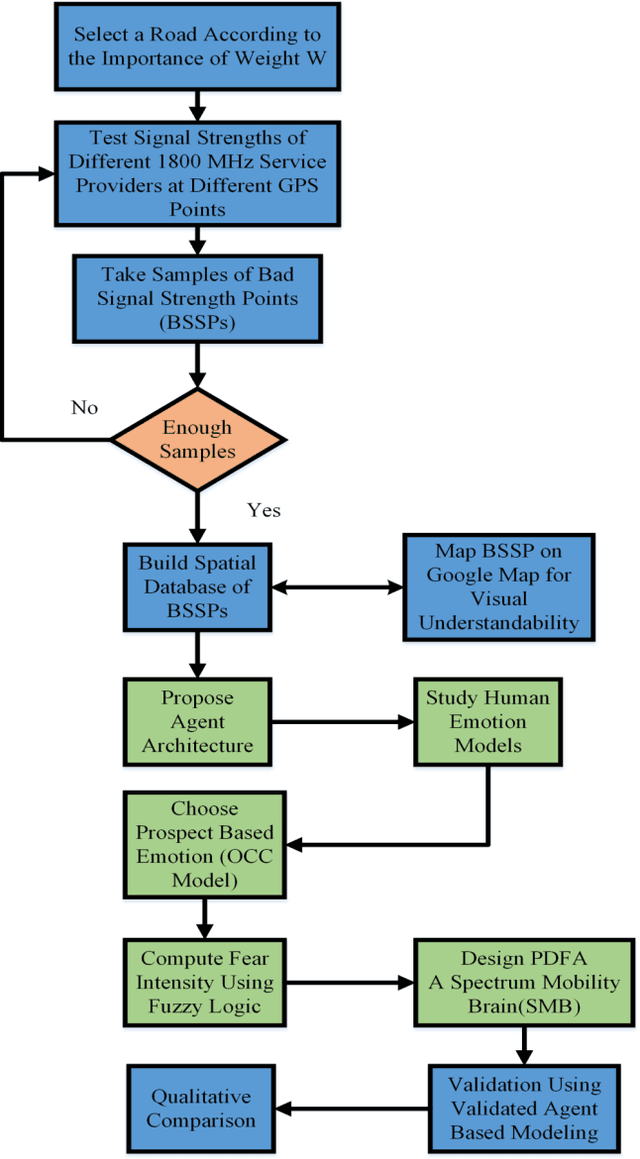Emotion Controlled Spectrum Mobility Scheme for Efficient Syntactic Interoperability In Cognitive Radio Based Internet of Vehicles
Paper and Code
Aug 06, 2017



Blind spots are one of the causes of road accidents in the hilly and flat areas. These blind spot accidents can be decreased by establishing an Internet of Vehicles (IoV) using Vehicle-2-Vehicle (V2V) and Vehicle-2-Infrastrtructure (V2I) communication systems. But the problem with these IoV is that most of them are using DSRC or single Radio Access Technology (RAT) as a wireless technology, which has been proven to be failed for efficient communication between vehicles. Recently, Cognitive Radio (CR) based IoV have to be proven best wireless communication systems for vehicular networks. However, the spectrum mobility is a challenging task to keep CR based vehicular networks interoperable and has not been addressed sufficiently in existing research. In our previous research work, the Cognitive Radio Site (CR-Site) has been proposed as in-vehicle CR-device, which can be utilized to establish efficient IoV systems. H In this paper, we have introduced the Emotions Inspired Cognitive Agent (EIC_Agent) based spectrum mobility mechanism in CR-Site and proposed a novel emotions controlled spectrum mobility scheme for efficient syntactic interoperability between vehicles. For this purpose, a probabilistic deterministic finite automaton using fear factor is proposed to perform efficient spectrum mobility using fuzzy logic. In addition, the quantitative computation of different fear intensity levels has been performed with the help of fuzzy logic. The system has been tested using active data from different GSM service providers on Mangla-Mirpur road. This is supplemented by extensive simulation experiments which validate the proposed scheme for CR based high-speed vehicular networks. The qualitative comparison with the existing-state-of the-art has proven the superiority of the proposed emotions controlled syntactic interoperable spectrum mobility scheme within cognitive radio based IoV systems.
 Add to Chrome
Add to Chrome Add to Firefox
Add to Firefox Add to Edge
Add to Edge